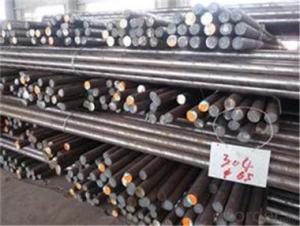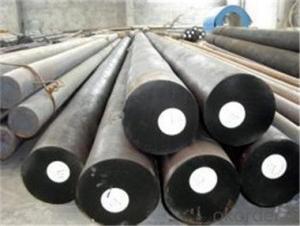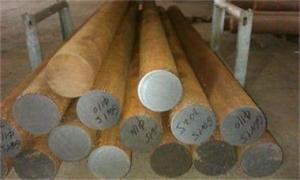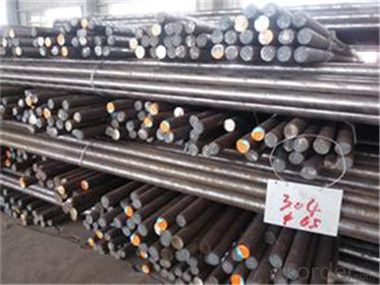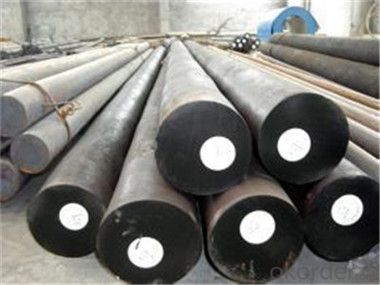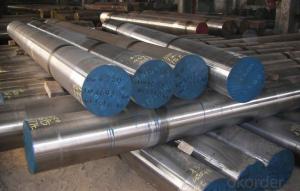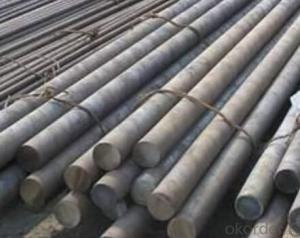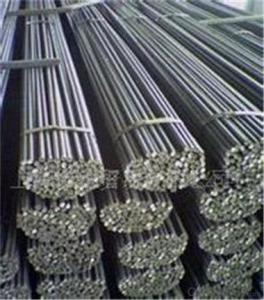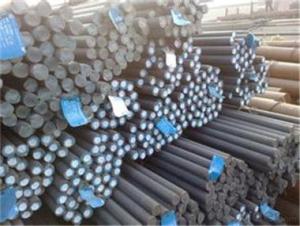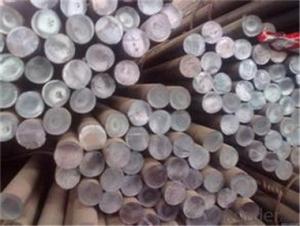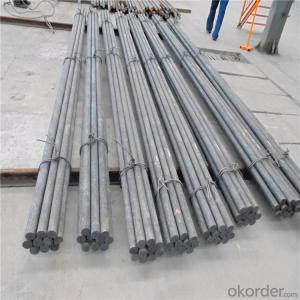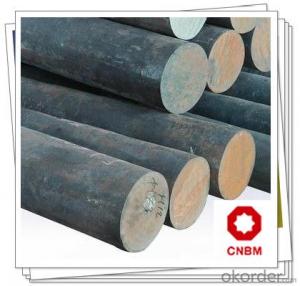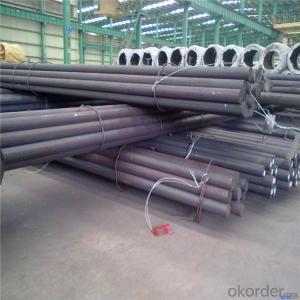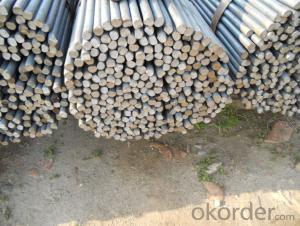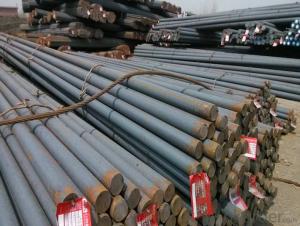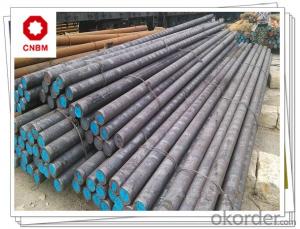S20C Carbon Steel Round Bars in China with High Quality
- Loading Port:
- Tianjin
- Payment Terms:
- TT OR LC
- Min Order Qty:
- 90 m.t.
- Supply Capability:
- 2000000 m.t./month
OKorder Service Pledge
OKorder Financial Service
You Might Also Like
Description of steel round bar:
1.Diameter 80 to 800 mm
2.Black or Bright surface
3.Annealed or Quenched and tempered provided
4.Cutting service provide
Festures of steel round bar:
4340 Forged Round Steel Bar
1.Dia 80-800mm Length:2000-13000mm or as required
2.Technique:Forged
3.Delivery Time:45 days
Specifications of steel round bar:
Description |
carbon steel rod,carbon steel shaft,mild steel bar, mild steel shaft,ms bar | |
Material | ASTM | 1005,1006,1008,1010 |
DIN | Ck10,Ck15,Ck22,Ck25,Ck30,Ck35 | |
BS | 040A04,095M15,045M10,080A40, | |
Standard | GB/T799,ASTM A29,A108,A321,A575, | |
Section shape |
Round | |
Length |
As your required | |
Application | Carbon steel rod applies to chemical industry, shipping industry, manufacturing industry,construction,decorate Industry,electric power, pump shafts, sanitary wares,furniture handles,boiler,high temperature resistant,low temperature resistant, corrosion resistant. | |
Images of steel round bar:
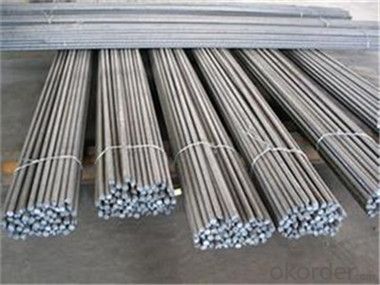
FAQ:
1. How long is the lead time?
Delivery time: 45 days after order confirmed.
2. What payment term do you accept?
Payment: T/T or L/C at sight.
- Q: What are the disadvantages of using steel round bars?
- There are a few disadvantages associated with using steel round bars. Firstly, steel round bars can be quite heavy, making them difficult to handle and transport. Secondly, steel round bars can corrode if not properly protected, which can lead to structural weakness and reduced lifespan. Additionally, steel round bars may not be suitable for certain applications that require lightweight or non-magnetic materials. Lastly, steel round bars can be more expensive compared to other materials, which may impact the overall project cost.
- Q: Can steel round bars be used for making power transmission systems?
- Yes, steel round bars can be used for making power transmission systems. Steel round bars possess high strength and durability, making them suitable for transmitting power in various applications such as gears, shafts, and couplings.
- Q: What are the different types of steel alloys used for round bars?
- There are several different types of steel alloys used for round bars, each offering unique properties and characteristics that make them suitable for various applications. Some of the commonly used steel alloys for round bars include: 1. Carbon Steel: This is the most common type of steel alloy used for round bars. It contains primarily carbon and iron, and offers excellent strength and toughness. Carbon steel round bars are commonly used in construction, manufacturing, and general engineering applications. 2. Stainless Steel: This alloy contains chromium, which provides corrosion resistance and makes it suitable for applications where rust or oxidation is a concern. Stainless steel round bars are widely used in the food and beverage industry, as well as in marine and chemical industries. 3. Alloy Steel: This type of steel alloy is made by adding other elements such as manganese, nickel, or chromium to improve its mechanical properties. Alloy steel round bars are known for their high strength, hardness, and resistance to wear and tear. They are commonly used in automotive, aerospace, and machinery industries. 4. Tool Steel: Tool steel alloys are specifically designed to have high hardness, wear resistance, and toughness. They are used for making cutting tools, dies, and molds. Tool steel round bars are available in various grades, such as D2, O1, and A2, each with specific properties for different applications. 5. Duplex Steel: This alloy contains a combination of austenitic and ferritic stainless steels, offering a combination of high strength and corrosion resistance. Duplex steel round bars are used in applications where both strength and resistance to corrosion are required, such as in the oil and gas industry. These are just a few examples of the different types of steel alloys used for round bars. The specific choice of alloy depends on the desired properties and the intended application of the round bar.
- Q: Can steel round bars be used in the production of packaging equipment?
- Steel round bars are indeed a versatile option for the production of packaging equipment. Their exceptional strength and durability make them highly favored in various industries. When it comes to packaging equipment, these round bars serve multiple purposes, such as offering structural support, reinforcement, or acting as components in the machinery's moving parts. The steel's impressive hardness and resistance to wear and tear make it ideal for handling heavy loads and ensuring uninterrupted operation. Moreover, steel round bars can be easily machined, welded, or modified to precisely meet the specific requirements of the packaging equipment. All in all, steel round bars are a dependable and widely utilized material in the manufacturing of packaging equipment.
- Q: What are the different surface treatments for steel round bars?
- Steel round bars offer a variety of surface treatments, each serving a specific purpose and offering unique advantages. Here are some of the most common treatments: 1. Hot-dip galvanizing: To prevent corrosion and rusting, steel round bars are immersed in molten zinc, creating a protective coating. This treatment is ideal for outdoor or corrosive environments. 2. Painting: Applying paint not only enhances the appearance of steel round bars but also protects them from moisture and oxidation. It is commonly used for decorative purposes or when a specific color is desired. 3. Powder coating: Dry powder is applied to the steel round bars and then cured under heat, resulting in a durable and appealing finish. This treatment provides excellent resistance to impact, chemicals, and UV rays. 4. Electropolishing: A smooth and shiny finish is achieved by using an electric current and an electrolyte solution to remove a thin layer from the steel round bars' surface. It enhances the appearance and corrosion resistance, making it suitable for applications requiring cleanliness and aesthetics. 5. Passivation: An acid solution is used to remove any free iron or iron oxide from the surface of steel round bars, improving their corrosion resistance. This treatment is commonly used for stainless steel round bars to increase longevity and prevent staining or rusting. 6. Shot blasting: Small steel balls or particles are propelled at high velocity onto the steel round bars, removing contaminants, scale, or rust. This results in a clean and roughened surface, improving adhesion for subsequent coatings or treatments. 7. Chrome plating: A thin layer of chromium is electroplated onto the surface of steel round bars, providing corrosion resistance, wear resistance, and a shiny appearance. This treatment is suitable for applications requiring durability and aesthetics. The choice of surface treatment for steel round bars depends on specific requirements such as corrosion resistance, aesthetics, or wear resistance. Before selecting a treatment, it is important to carefully consider the intended use and environmental conditions.
- Q: How do you calculate the maximum allowable stress for a steel round bar?
- To calculate the maximum allowable stress for a steel round bar, you need to determine the material's yield strength and apply a safety factor. The formula is: Maximum Allowable Stress = Yield Strength / Safety Factor. The safety factor typically depends on the application and industry standards.
- Q: Are steel round bars suitable for aerospace applications?
- Yes, steel round bars can be suitable for aerospace applications. Steel is known for its high strength, durability, and resistance to corrosion, which are important factors in the aerospace industry. Steel round bars can be used in various aerospace components and structures such as landing gear, engine components, and structural supports. However, it is important to note that the specific grade and composition of the steel round bars must meet the stringent requirements and standards set by the aerospace industry. Additionally, other factors such as weight reduction efforts and the use of advanced materials like titanium and composites are also considered in aerospace applications.
- Q: What are the advantages of using nickel-molybdenum-vanadium alloy steel round bars?
- One advantage of using nickel-molybdenum-vanadium alloy steel round bars is their high strength and toughness. This makes them suitable for applications that require resistance to heavy loads and impact. Additionally, these alloy steel round bars have excellent corrosion resistance properties, making them ideal for use in environments with high humidity or exposure to chemicals. Furthermore, the addition of nickel, molybdenum, and vanadium enhances the material's heat resistance, making it suitable for high-temperature applications.
- Q: Can steel round bars be used for making control arms?
- Yes, steel round bars can be used for making control arms. They are commonly used in the automotive industry as they provide strength, durability, and stability required for control arm applications.
- Q: How do you check the quality of a steel round bar?
- Several factors need to be taken into account when checking the quality of a steel round bar. Firstly, it is crucial to assess the dimensions of the bar. This involves measuring its diameter, length, and straightness. Any deviation from the specified dimensions could indicate a lower quality bar. Next, it is important to inspect the surface condition of the steel round bar. It should be free from visible defects such as cracks, pits, or surface irregularities. Additionally, the surface should be smooth and without significant roughness or burrs. Moreover, the chemical composition of the steel round bar must be examined. This can be done through spectroscopic analysis or other testing methods. The composition should meet the required standards and specifications, as any deviations can impact the bar's strength and durability. Another crucial aspect to consider is the mechanical properties of the steel round bar. This involves testing its tensile strength, yield strength, and elongation. Specialized machines can be used for these tests to ensure that the bar meets the necessary strength requirements. Additionally, non-destructive testing methods such as ultrasonic testing or magnetic particle inspection can be employed to identify any internal or surface defects that may affect the bar's quality. Furthermore, it is essential to verify the bar's compliance with industry standards and certifications. This includes checking if the steel round bar meets the specifications set by organizations like ASTM International or ISO. Lastly, consulting reputable suppliers or manufacturers with a proven track record in producing high-quality steel round bars is advisable. They can provide documentation, certifications, and test reports to validate the quality of their products. To summarize, evaluating the dimensions, surface condition, chemical composition, mechanical properties, compliance with standards, and supplier's reputation are key steps in checking the quality of a steel round bar. By thoroughly examining these factors, one can ensure the reliability and performance of the steel round bar for its intended applications.
Send your message to us
S20C Carbon Steel Round Bars in China with High Quality
- Loading Port:
- Tianjin
- Payment Terms:
- TT OR LC
- Min Order Qty:
- 90 m.t.
- Supply Capability:
- 2000000 m.t./month
OKorder Service Pledge
OKorder Financial Service
Similar products
Hot products
Hot Searches
Related keywords
